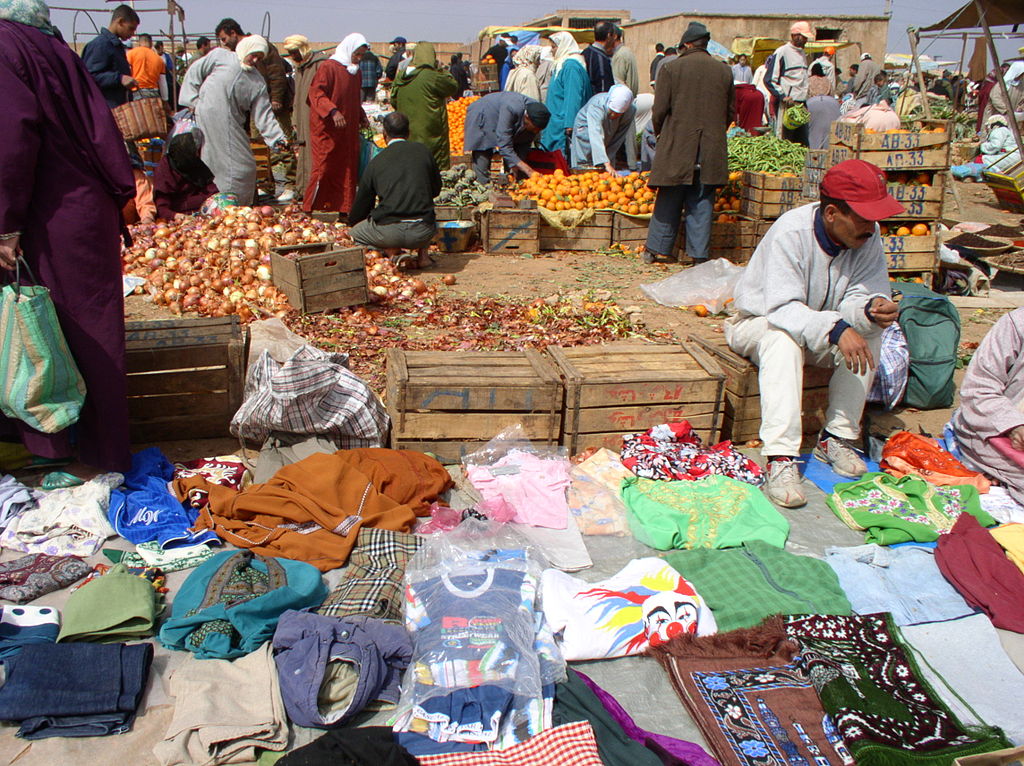Disability and Poverty in Morocco
 Morocco is working to create an equitable society that is inclusive of people living with disability and poverty. The king and ministers of government in recent years have expressed concerns regarding the connection between disability and poverty in Morocco and have set out to address those concerns. The Moroccan government in conjunction with international nonprofit and aid organizations has made significant progress toward reaching reform goals.
Morocco is working to create an equitable society that is inclusive of people living with disability and poverty. The king and ministers of government in recent years have expressed concerns regarding the connection between disability and poverty in Morocco and have set out to address those concerns. The Moroccan government in conjunction with international nonprofit and aid organizations has made significant progress toward reaching reform goals.
The King’s Decree
King Mohammed VI decreed in 2022 that social protections for citizens experiencing disability and poverty in Morocco would be a top priority moving forward. That year, the king set a 2025 goal for finalizing initial reforms to Morocco’s social protection programs.
The Arab Reform Initiative has called King Mohammed VI’s decree to focus on health care and social reforms, “one of the most significant decisions since the nation’s independence.”
The Relationship: Poverty and Disability
According to 2023 statistics from the United Nations Development Program, 5.5% of Morocco’s population (727,833 people) have a disability. UNICEF statistics from 2022 show that one in seven children in The Middle East and North Africa live with a disability. Children with disabilities in the region are often marginalized from society due to social stigmas and lack of access to health care and social protection services.
People with disabilities, both visible and invisible, are more likely to experience multidimensional poverty than their peers without disability. One can attribute this to several interrelated factors which cause people with disabilities to experience more barriers when attempting to access education, employment, transportation and health care.
Assistive devices give people with disabilities the opportunity to hear and be heard, to communicate, be mobile and access services. However, these devices, hearing aids and wheelchairs for example, are often costly.
Social stigma and lack of access to services create prohibitive barriers to social and economic inclusion for people experiencing poverty and disability in Morocco. The Moroccan government hopes to reduce those barriers and stigma with its new social reforms.
Urgent Reforms
By the end of 2023, Morocco had already made significant progress towards its goals by working with international organizations and nonprofits. In 2023, the World Bank contributed $350 million USD to social protection initiatives in Morocco.
Dalal Moosa, Senior Economist and Program Co-Leader at the World Bank commended Morocco’s reforms, saying, “The implementation of [social protection programs] will be critical to protecting vulnerable populations such as women, children, people with disabilities and isolated populations in rural or remote areas against health risks.”
Reforms supportive of those living with disability and poverty in Morocco continued to progress when the government introduced its 2024 budget plan. The 2024 budget specifically allocates funding to programs for children with disabilities.
About $36.6 million USD of the 2024 Moroccan governmental budget is going to programs and initiatives supporting children with disabilities in Morocco. Minister Naima Ben Yahya estimated that programs funded by the 2024 budget would reach and support 27,500 children living with disabilities.
First Steps
Morocco took its first step toward its goal of providing its citizens with universal health care by merging the private and public health care sectors in 2022. Since then, access to private health care options has reduced the stress on the public health care sector.
In an added push towards its goal of universal health care, Morocco is funding initiatives to support telehealth options for its citizens. The positive impact of the telehealth initiatives is especially noticeable in rural areas of Morocco where health care facilities can be few and far between.
Human Rights and Autonomy
Social stigma is a significant barrier to inclusion and fulfilment for people living at the crossroad of disability and poverty in Morocco. The United Nations Development Programme (UNDP) is focused on breaking down those barriers by upholding and strengthening the human rights and autonomy of people with disability.
UNDP projects in Morocco include the standardization of sign language within the nation, improvements to the disability certification process and increasing the accessibility of buildings and restrooms. Additional projects that the UNDP is managing in Morocco aim to reduce social stigma by actively dismantling prejudice, spreading awareness and information and promoting social inclusion of people with disability.
The United Nations Development Programme has expressed optimism about Morocco’s reforms, saying, “Imagine a world where every person, regardless of their disability, can thrive, actively participate, and fully contribute to society. In Morocco, this paradigm is becoming a reality.”
– Caitlyn Erwin
Caitlyn is based in Asheville, NC, USA and focuses on Good News for The Borgen Project.
Photo: Wikimedia Commons
